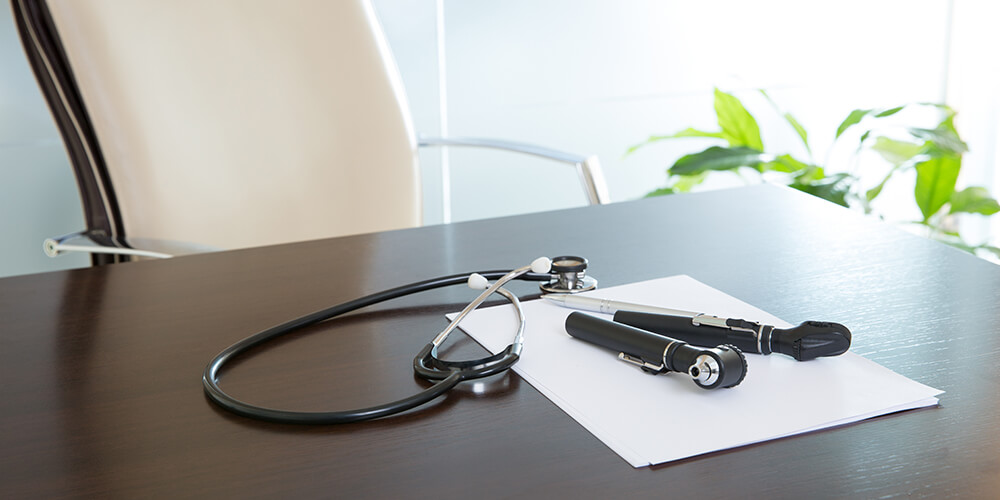
Four Unusual Jobs You Can Do with an Audiology Degree
If you’re working toward an audiology degree, it’s likely that you’ve already committed to a career as an audiologist. However, you might have a nagging feeling in the back of your mind that wonders if maybe that’s not really the career path for you.
Perhaps the thought of working in a clinic once excited you, but now it fills you with dread. Maybe you’re just struggling to stay interested in clinical audiology. Are you starting to doubt that you’ve made the right choice now that you’re way too deep to back out now?
First off, we want to encourage you to stick with the audiologist career. Audiologists are in high demand, so getting a well-paying job shouldn’t be difficult. Plus, audiology has one of the highest job satisfaction rates out there. It’s a fantastic career, and people love doing it.
However, if you’re still wondering what kind of back-up options you might have, we’ve created a list of four alternative jobs that you can do with an audiology degree.
Audiology Teacher
There’s an old saying that goes: “Those who can, do; those who can’t, teach.” We think this is maybe a bit unfair to teachers – teaching is an important job and not everyone can do it. In fact, we think that we could rewrite this phrase entirely to say: “If you know how to do it but no longer want to, you can still teach it.” Better?
What we’re getting at is that if you’ve applied yourself to learning the field of audiology (which takes eight years of college in many cases), yet you’ve decided for some reason that you no longer want to pursue it as a career, you can always pass on that knowledge to others who are hoping to become audiologists themselves.
In fact, if you’re serious about earning a lot of money, being an audiology teacher actually pays slightly more than audiology, according to a 2016 survey. Here’s a breakdown: the median calendar-year salary for clinical service providers is about $75,000, while it’s $84,609 for university faculty and clinical educators.
Forensic Audiologist
A forensic audiologist is a person who applies the principles of audiology to legal matters. So you might be running tests to determine the validity of a testimony. You could be asked to investigate things witnesses claimed to hear and determine if those testimonies are reliable or not. You might need to test an alarm system to see if it had indeed been too soft for people to hear during an emergency that happened. You might even be called in to investigate an automotive accident to find out if there was something that should have been heard that would have prevented it (such as a signal or another car’s horn).
If you like investigative work, and you don’t mind spending a lot of time in court, then this might be a good career choice for you.
Animal Audiologist
If you’re not certain you want to handle human patients, why not try animals? While that phrase probably reads like a joke, it’s really not: zoos need audiologists too. You could be an animal audiologist. Animal audiology isn’t limited to zoos, of course. The field is still growing, but it’s finding a home in veterinarian offices, aquariums, and even in the military.
There are some great posts about animal audiology out there. We found a good one on Pathways and another that comes from the Student Academy of Audiology. Both of these are great resources if you want to know more about animal audiology.
Psychoacoustician
Psychoacoustics is a branch of science that deals with how humans deal with sound, whether it’s loud noises, human speech, or even music. Practical applications of this field include everything from determining the ideal loudness of a musical instrument for a patient with hearing loss to determining how audio quality in various rooms might affect a person’s mood.
It’s difficult to give a day-to-day breakdown for a psychoacoustician because it can vary so widely. Suffice it to say that this is a field that can open a lot of possibilities. If you love studying audio and physiology, as well as thinking about how those two things relate to each other, this career path seems like it was made for you.
Conclusion
As you can see, getting an audiology degree doesn’t necessarily railroad you into practicing audiology in a clinic. There are all sorts of applications for audiologists, and many exciting audiology careers that exist outside of clinics.
All of this, of course, isn’t to downplay clinical audiologists. Like we said in the introduction, it’s a fantastic career that a lot of people love very much. We just wanted to point out that your audiology degree certainly doesn’t force you into a box. Sometimes the perfect job for you is the one you would have never thought of on your own.
If you’re currently looking for work in the audiology field, contact Staffing Proxy right away and let us see if we can match you with your dream job.

